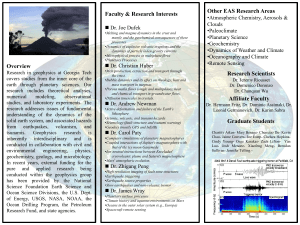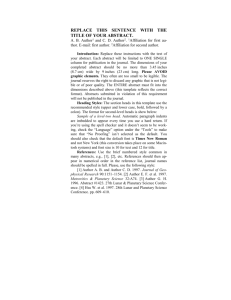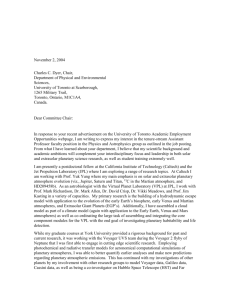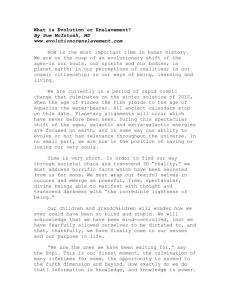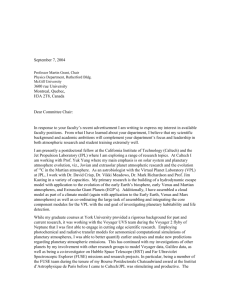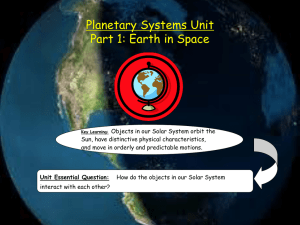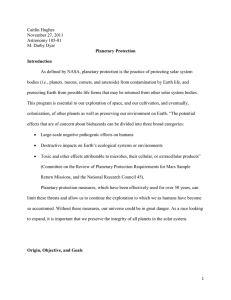eas_grad_recruitment_planetary
advertisement
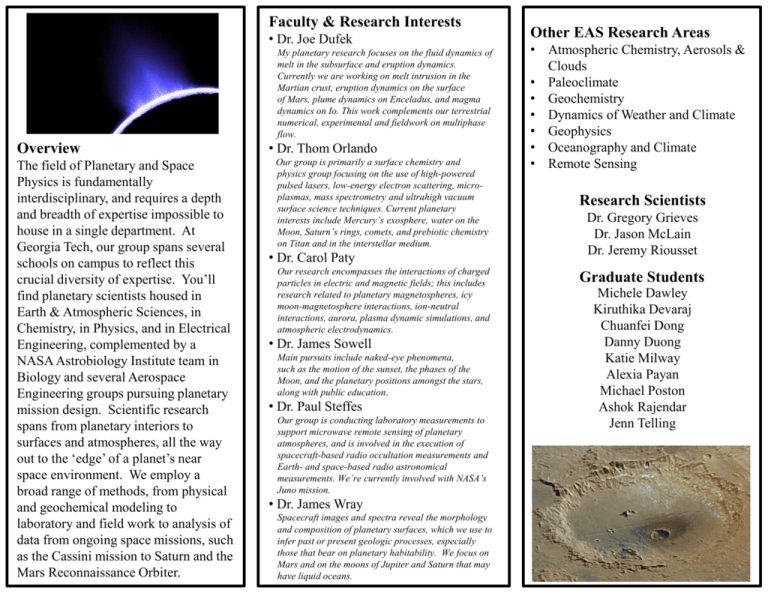
Faculty & Research Interests • Dr. Joe Dufek My planetary research focuses on the fluid dynamics of melt in the subsurface and eruption dynamics. Currently we are working on melt intrusion in the Martian crust, eruption dynamics on the surface of Mars, plume dynamics on Enceladus, and magma dynamics on Io. This work complements our terrestrial numerical, experimental and fieldwork on multiphase flow. Overview The field of Planetary and Space Physics is fundamentally interdisciplinary, and requires a depth and breadth of expertise impossible to house in a single department. At Georgia Tech, our group spans several schools on campus to reflect this crucial diversity of expertise. You’ll find planetary scientists housed in Earth & Atmospheric Sciences, in Chemistry, in Physics, and in Electrical Engineering, complemented by a NASA Astrobiology Institute team in Biology and several Aerospace Engineering groups pursuing planetary mission design. Scientific research spans from planetary interiors to surfaces and atmospheres, all the way out to the ‘edge’ of a planet’s near space environment. We employ a broad range of methods, from physical and geochemical modeling to laboratory and field work to analysis of data from ongoing space missions, such as the Cassini mission to Saturn and the Mars Reconnaissance Orbiter. • Dr. Thom Orlando Our group is primarily a surface chemistry and physics group focusing on the use of high-powered pulsed lasers, low-energy electron scattering, microplasmas, mass spectrometry and ultrahigh vacuum surface science techniques. Current planetary interests include Mercury’s exosphere, water on the Moon, Saturn’s rings, comets, and prebiotic chemistry on Titan and in the interstellar medium. • Dr. Carol Paty Our research encompasses the interactions of charged particles in electric and magnetic fields; this includes research related to planetary magnetospheres, icy moon-magnetosphere interactions, ion-neutral interactions, aurora, plasma dynamic simulations, and atmospheric electrodynamics. • Dr. James Sowell Main pursuits include naked-eye phenomena, such as the motion of the sunset, the phases of the Moon, and the planetary positions amongst the stars, along with public education. • Dr. Paul Steffes Our group is conducting laboratory measurements to support microwave remote sensing of planetary atmospheres, and is involved in the execution of spacecraft-based radio occultation measurements and Earth- and space-based radio astronomical measurements. We’re currently involved with NASA’s Juno mission. • Dr. James Wray Spacecraft images and spectra reveal the morphology and composition of planetary surfaces, which we use to infer past or present geologic processes, especially those that bear on planetary habitability. We focus on Mars and on the moons of Jupiter and Saturn that may have liquid oceans. Other EAS Research Areas • Atmospheric Chemistry, Aerosols & Clouds • Paleoclimate • Geochemistry • Dynamics of Weather and Climate • Geophysics • Oceanography and Climate • Remote Sensing Research Scientists Dr. Gregory Grieves Dr. Jason McLain Dr. Jeremy Riousset Graduate Students Michele Dawley Kiruthika Devaraj Chuanfei Dong Danny Duong Katie Milway Alexia Payan Michael Poston Ashok Rajendar Jenn Telling Degree Requirements M.S. Students • Course: 30 Credit Hours • Thesis or Non-Thesis Ph.D. Students • EAS Course: 15 Credit Hours • Minor Course: 9 Credit Hours • Academic Breadth • Comprehensive Exam • Doctoral Examination Related Courses (each student takes a subset based on specific interests) • Aqueous Geochemistry • Atmospheric Radiative Transfer • Earth System Modeling • Geochemical Kinetics • Geochemical Thermodynamics • Geodynamics • Geofluids • Introduction to Geophysics • Introduction to Space Physics and Space Instrumentation • Isotope Geochemistry • Remote Sensing of the Atmosphere and Oceans • Physical Hydrology • Physical Volcanology • Physics of Planets Application Requirements • B.S. or M.S. in any field of geophysical, physical or environmental science • GPA: 3.0/4.0 & Higher • Graduate Record Exam (GRE) • TOEFL > 79 (International Students) School of Earth & Atmospheric Science Application Materials • • • • • Application Form (Online) Personal Statement Recommendation Letters (3) Official Transcripts (each school) Test Scores (GRE and/or TOEFL) Financial Assistance • • • • Graduate Assistantships (RA/TA) Full Tuition Payment National and Local Fellowships Professional Conferences EAS Opportunities • • • • • Research field missions State-of-the-art laboratories Local environmental monitoring Broad range of computing resources Interdisciplinary seminar series Application Target January 15 Admissions: Dr. Kim Cobb kim.cobb@eas.gatech.edu Information: Kathy Plummer plummer@eas.gatech.edu Planetary and Space Physics
